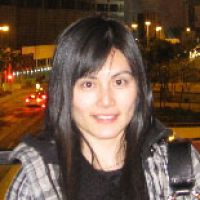Who Should Apply?
BCS (ICS) in brief
Bachelor of Computer Science (Integrated Computer Science) BCS (ICS) is a 20-month full-time academically-oriented program for university graduates to make a career transition into information technology or to combine their area of interest or specialty with computer science. BCS (ICS) is for you if you have:
- completed at least a bachelor's degree in a field that does not overlap with Computer Science,
- demonstrated solid academic achievement in your previous degree (e.g. at least a B- average), and
- little or no current experience in programming.
Why would I want to do this?
Canadian industry desperately needs talented people with knowledge in computer science and other areas such as biology, statistics, psychology, humanities, or arts. Even if you've never imagined becoming a computer professional, if you're bright, creative, articulate, logical, organized, determined, and enjoy working with people, BCS (ICS) might be right for you. Explore your passions while making a significant contribution to society, get access to unparalleled opportunities for advancement, learning, and self-development and enter a field that pays well and sometimes offers flexible working hours, helping you achieve a good work-life balance.
Who should apply?
Because the first eight months of the BCS (ICS) program is intense and challenging, in addition to the three main requirements listed above, you should have:
- a high level of motivation
- enjoy learning new things
- exploring new environments and cultures
- be flexible in your job search
- be prepared to work hard
- have a computer literacy course (or equivalent knowledge)
- at least three credits of college or university level English (transferrable to UBC as one of ENGL 110, 111, 112, 120, 121 or ARTS 001)
- BC Principles of Mathematics 12 (or an equivalent pre-calculus course)
Note that it is not necessary for you to have completed all of these requirements prior to applying for admission to the program, however you do need to provide proof that you are completing all the admission requirements. Please check our FAQs for more information. Acceptance to the program may be conditional on if you pass the computer literacy, English and/or math readiness course(s).
What kinds of backgrounds do BCS students have?
The program has many mature students (beyond their late-20s). Many come from backgrounds both inside and outside the sciences (e.g. Biology, Commerce or Business, Engineering, Psychology, Law, Human Kinetics and even Music). Since the program's start in 1998, female students have made up about 37% of the accepted applicants, much higher than the average for Computer Science, and we aim to recruit 50% women and 50% men. Many of our students, including international students, eagerly join our co-op work program to combine their degrees with real-world experience (for pay).
The Fees
Domestic students pay regular Faculty of Science tuition fees for the courses taken. International student fees are higher; please refer to the International Students FAQ, or UBC's website for more information. Students should plan for a minimum of five academic terms. In addition to paying tuition fees, there are other costs associated with applying to UBC and registering for courses. Please see the Finances section of the UBC Student Services website for details.
Your Resulting Credentials
Upon completion, you will receive a Bachelor of Computer Science (Integrated Computer Science) degree from UBC. It is a full CS degree. Compared to the "normal" BSc program, BCS includes all 8 core CS courses and two fewer CS electives (4 rather than 6), although BCS students can usually include two additional CS electives in their "bridging module" requirement.
Who runs BCS?
BCS (ICS) is run through UBC's Department of Computer Science. The department is among the world's leading Computer Science departments. Its faculty consist of internationally renowned senior researchers and educators, as well as promising young faculty. The expertise of the department lies in such diverse areas as theoretical computer science, computer graphics and animation, artificial intelligence, computational vision, databases, educational technology, hardware design and verification, operating systems, parallel computation, robotics, software engineering, numerical analysis, etc. See the department's website for more details on recent achievements.
| Attachment | Size |
|---|---|
| vancouver_sun_article_20121016.pdf | 80.86 KB |




